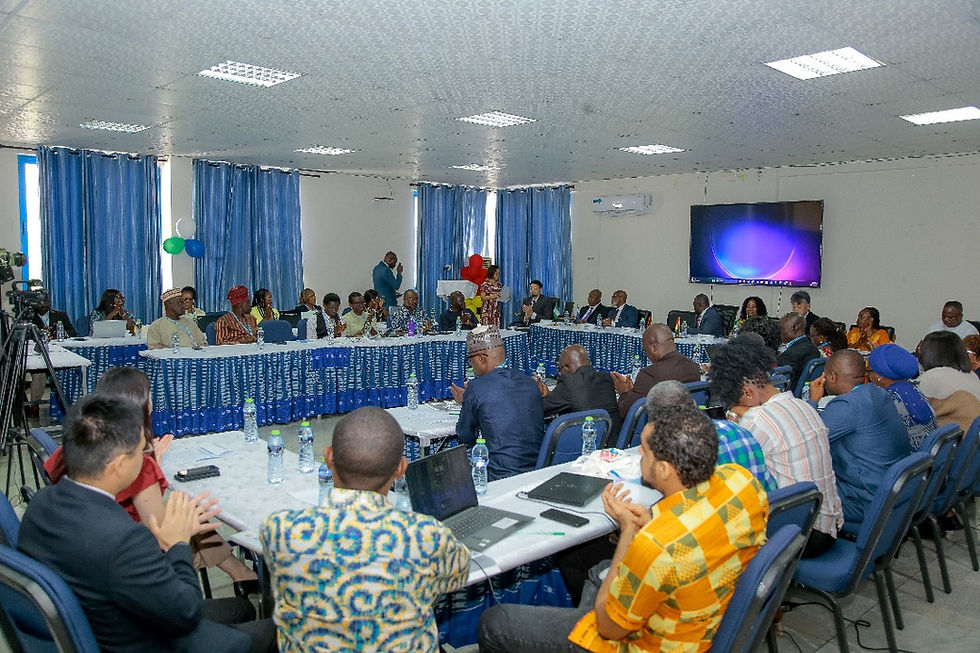"As West African countries, we face common perennial challenges in managing our borders" - GIS BOSS
- Think News Online
- Nov 23, 2023
- 3 min read

Comptroller-General of the Ghana Immigration Service (GIS), Kwame Asuah Takyi says inadequate infrastructure and equipment; management of numerous irregular border crossing points; migration data management; the existence of cross border trafficking and smuggling networks and other transnational border crimes contribute to the common perennial challenges in managing borders as West African countries.
According to him, this situation is further exacerbated by contemporary challenges, such as the emergence of violent extremism.
Speaking at a Regional Technical Conference on Regional Cooperation for enhancing resilience and mitigating risks in border management in Accra, he said "Over the years, we have witnessed extremist groups or individuals deepening their aspiration to spread the instability with which our northern neighbours are grappling with. At the same time, the porous nature of our borders has heightened the situation and thus making it too easy for criminals to cross into our countries illegally"
"As neighbouring countries, we must increase our efforts to prepare for and tackle urgent, overlapping issues if it is our objective to strengthen regional cooperation to enhance resilience and mitigate risks in border management"
"Current security happenings in the Sahelian states has further highlighted the vulnerabilities and risks faced by us. It threatens our socio-political and economic security with migratory flows, disruption in trade activities due to closure of borders and influx of migrants displaced by violence"
"These multiple and overlapping issues pose serious challenges in maintaining the peace and stability that we require and emphasize the need to advance the regional cooperation and coordination in the border management agenda"
Mr. Takyi noted that regional cooperation and coordination can provide valuable support to national and regional border management efforts in the short-term while also enabling all to lay the foundations for a more resilient, inclusive, sustainable and stronger sub-region.
"With some of us suffering from the attacks under terrorist siege, some still remain unattacked. Juxtaposing this to the current situations, it is important to acknowledge that, violent extremism and other transnational crimes has not only become a threat to us but also closer to us than ever"
"As a result, there is increasing need for resilience-building and mitigating risks as an agenda that can facilitate holistic, positive and lasting changes in our countries especially communities who are most at risk of harm. I am glad this regional conference has once again brought us together to deliberate on issues of common interest"
"It is my expectation that at the end of this conference, an approach that harmonizes different risk management actions would be arrived at. Let us endeavour to be very much aware of each of the mitigating actions and get well-coordinated in the interest of ensuring the territorial integrity of our individual countries. This is necessary for us as countries with common interest. Beyond this, strengthened regional cooperation is essential to facilitating open data and boosting much-needed cross-border management initiatives"
He noted that driving greater regional cooperation for enhancing resilience and mitigating risks in border management forward into the next phase requires strong leadership to manage and secure borders.
"By working together through this platform, we can both deliver on this agenda and move the region’s cooperation and integration into the next phase"
He hinted that Ghana was committed to supporting a stronger regional cooperation every step of the way.
"Together we can deliver the vision of having a well-coordinated, integrated, sustainable and inclusive future for all in the management of our borders in the interest of our respective countries to contribute meaningfully to the management of migration for national development"
Mr. Takyi expressed his appreciation and gratitude to the European Union and the International Centre for Migration Policy Development for their support to migration management in the country.
Story by: Joshua Kwabena Smith








Comments